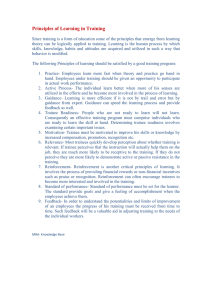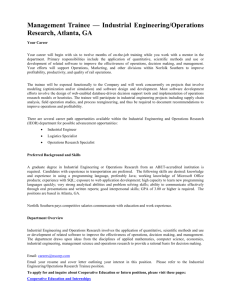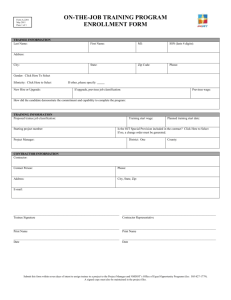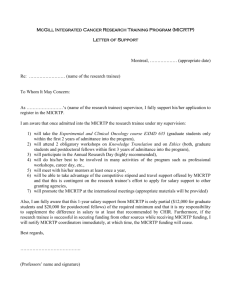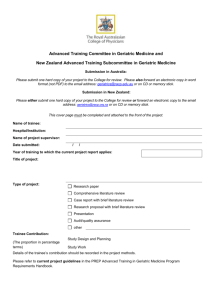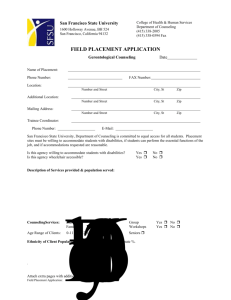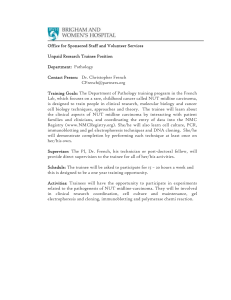Guide for writing short description of the trainee`s project.
advertisement
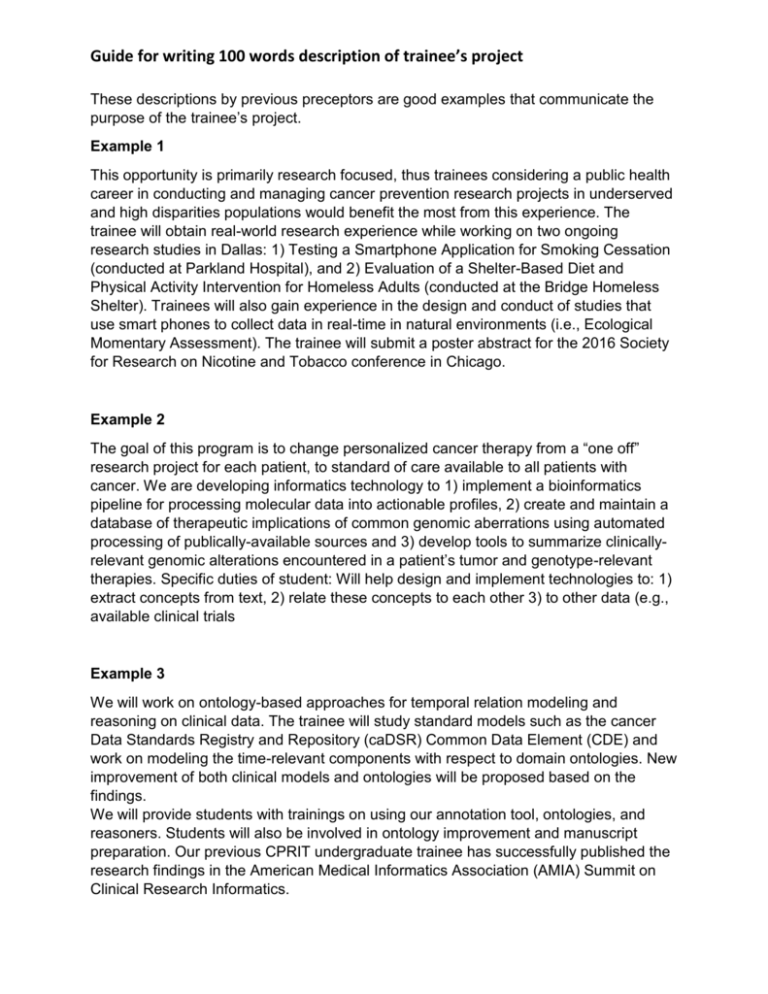
Guide for writing 100 words description of trainee’s project These descriptions by previous preceptors are good examples that communicate the purpose of the trainee’s project. Example 1 This opportunity is primarily research focused, thus trainees considering a public health career in conducting and managing cancer prevention research projects in underserved and high disparities populations would benefit the most from this experience. The trainee will obtain real-world research experience while working on two ongoing research studies in Dallas: 1) Testing a Smartphone Application for Smoking Cessation (conducted at Parkland Hospital), and 2) Evaluation of a Shelter-Based Diet and Physical Activity Intervention for Homeless Adults (conducted at the Bridge Homeless Shelter). Trainees will also gain experience in the design and conduct of studies that use smart phones to collect data in real-time in natural environments (i.e., Ecological Momentary Assessment). The trainee will submit a poster abstract for the 2016 Society for Research on Nicotine and Tobacco conference in Chicago. Example 2 The goal of this program is to change personalized cancer therapy from a “one off” research project for each patient, to standard of care available to all patients with cancer. We are developing informatics technology to 1) implement a bioinformatics pipeline for processing molecular data into actionable profiles, 2) create and maintain a database of therapeutic implications of common genomic aberrations using automated processing of publically-available sources and 3) develop tools to summarize clinicallyrelevant genomic alterations encountered in a patient’s tumor and genotype-relevant therapies. Specific duties of student: Will help design and implement technologies to: 1) extract concepts from text, 2) relate these concepts to each other 3) to other data (e.g., available clinical trials Example 3 We will work on ontology-based approaches for temporal relation modeling and reasoning on clinical data. The trainee will study standard models such as the cancer Data Standards Registry and Repository (caDSR) Common Data Element (CDE) and work on modeling the time-relevant components with respect to domain ontologies. New improvement of both clinical models and ontologies will be proposed based on the findings. We will provide students with trainings on using our annotation tool, ontologies, and reasoners. Students will also be involved in ontology improvement and manuscript preparation. Our previous CPRIT undergraduate trainee has successfully published the research findings in the American Medical Informatics Association (AMIA) Summit on Clinical Research Informatics.
